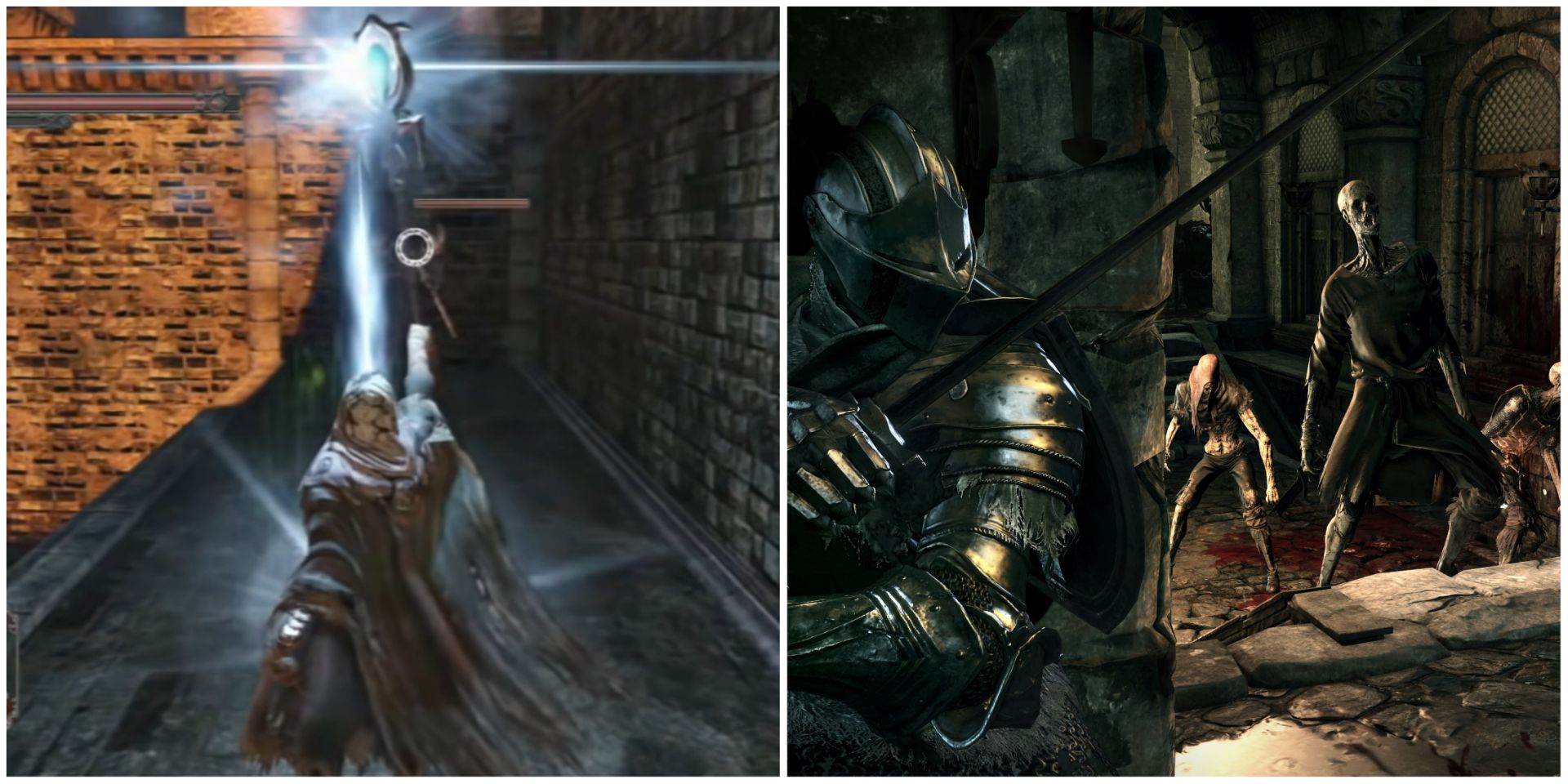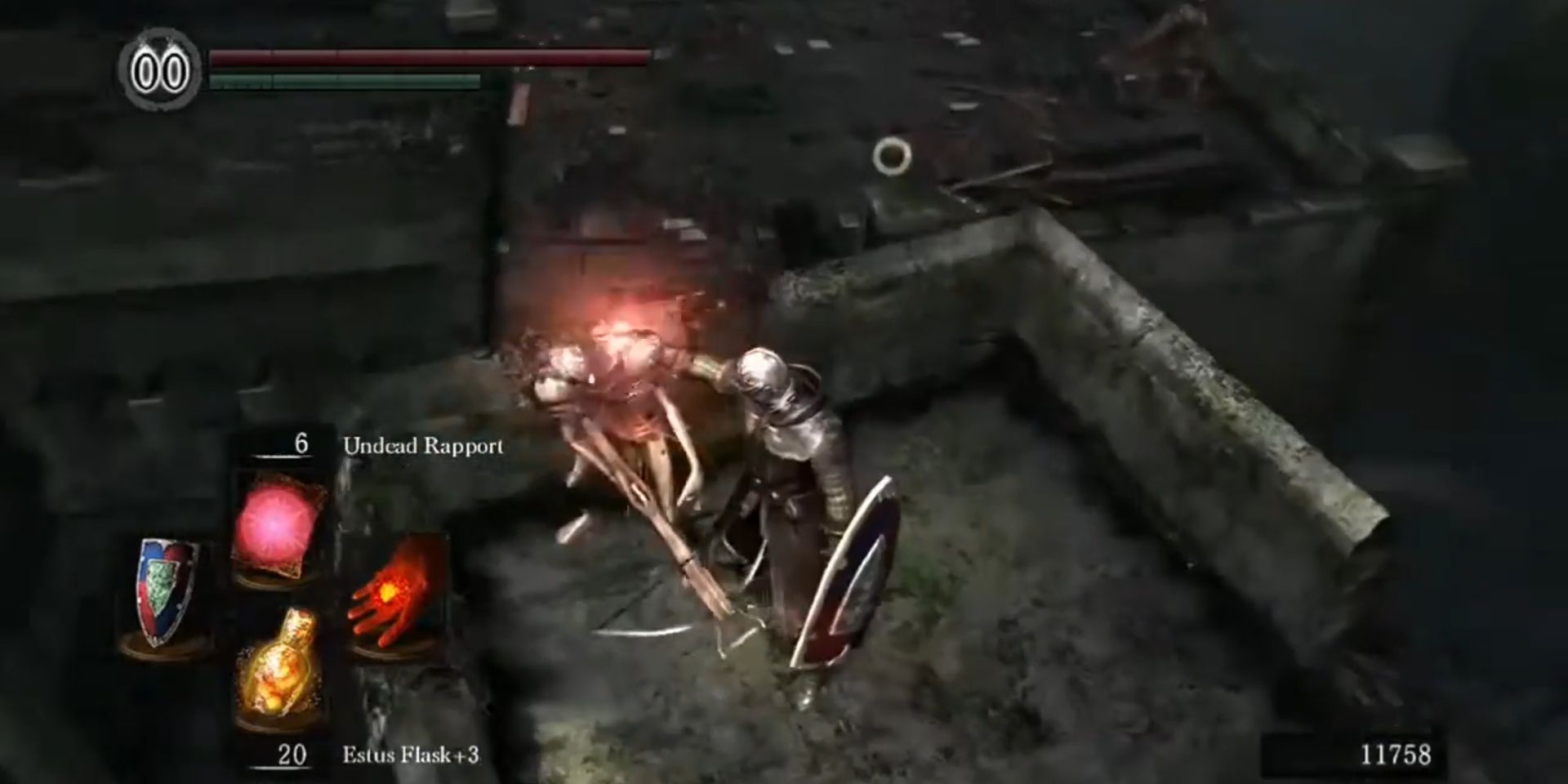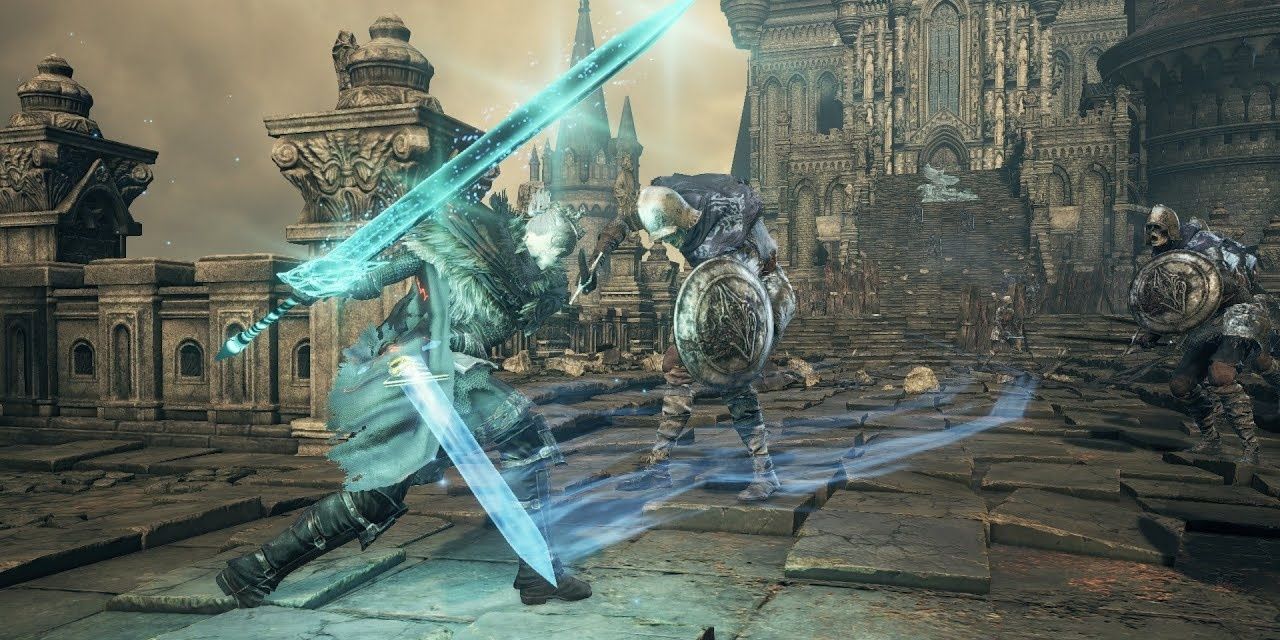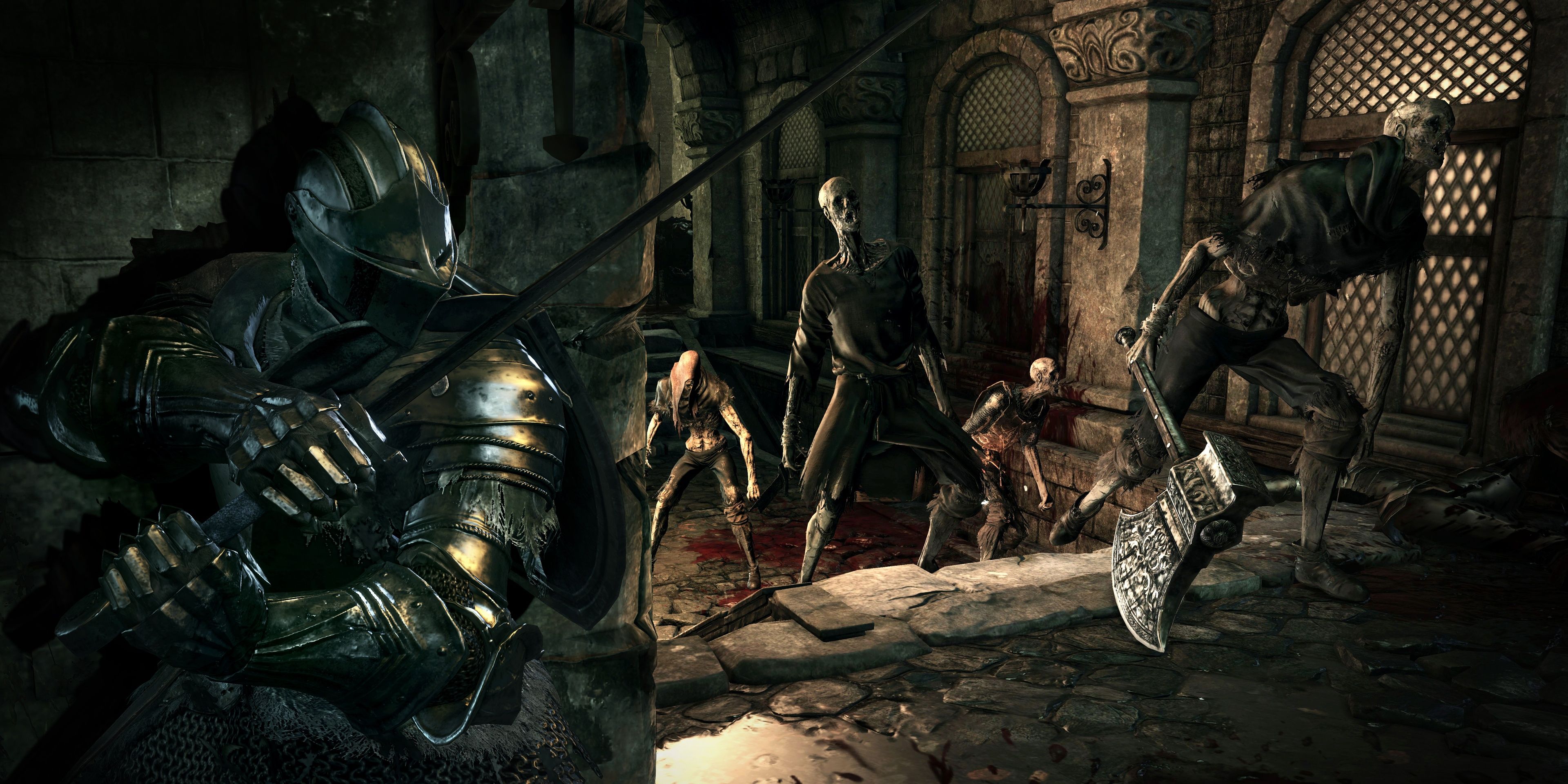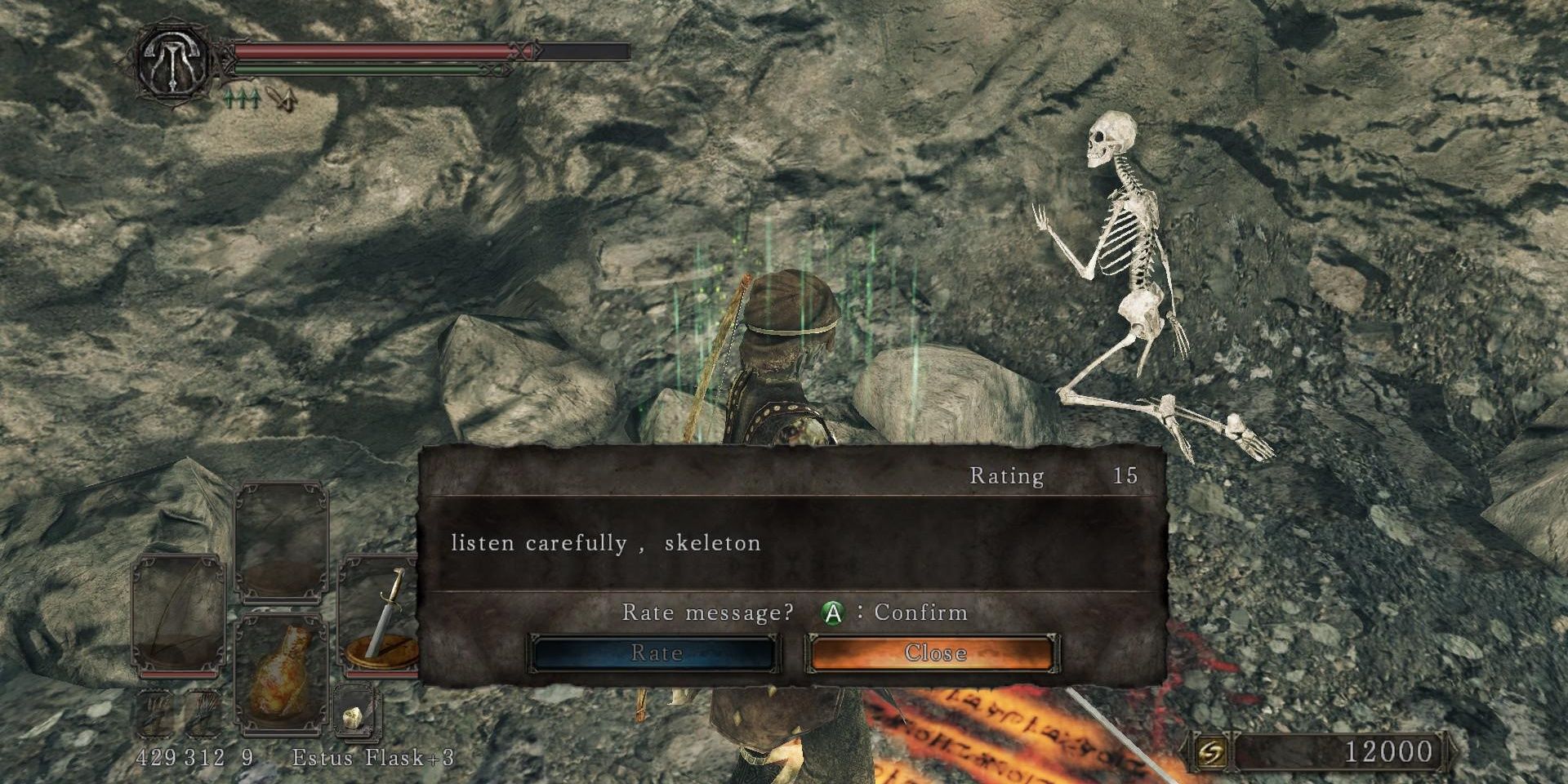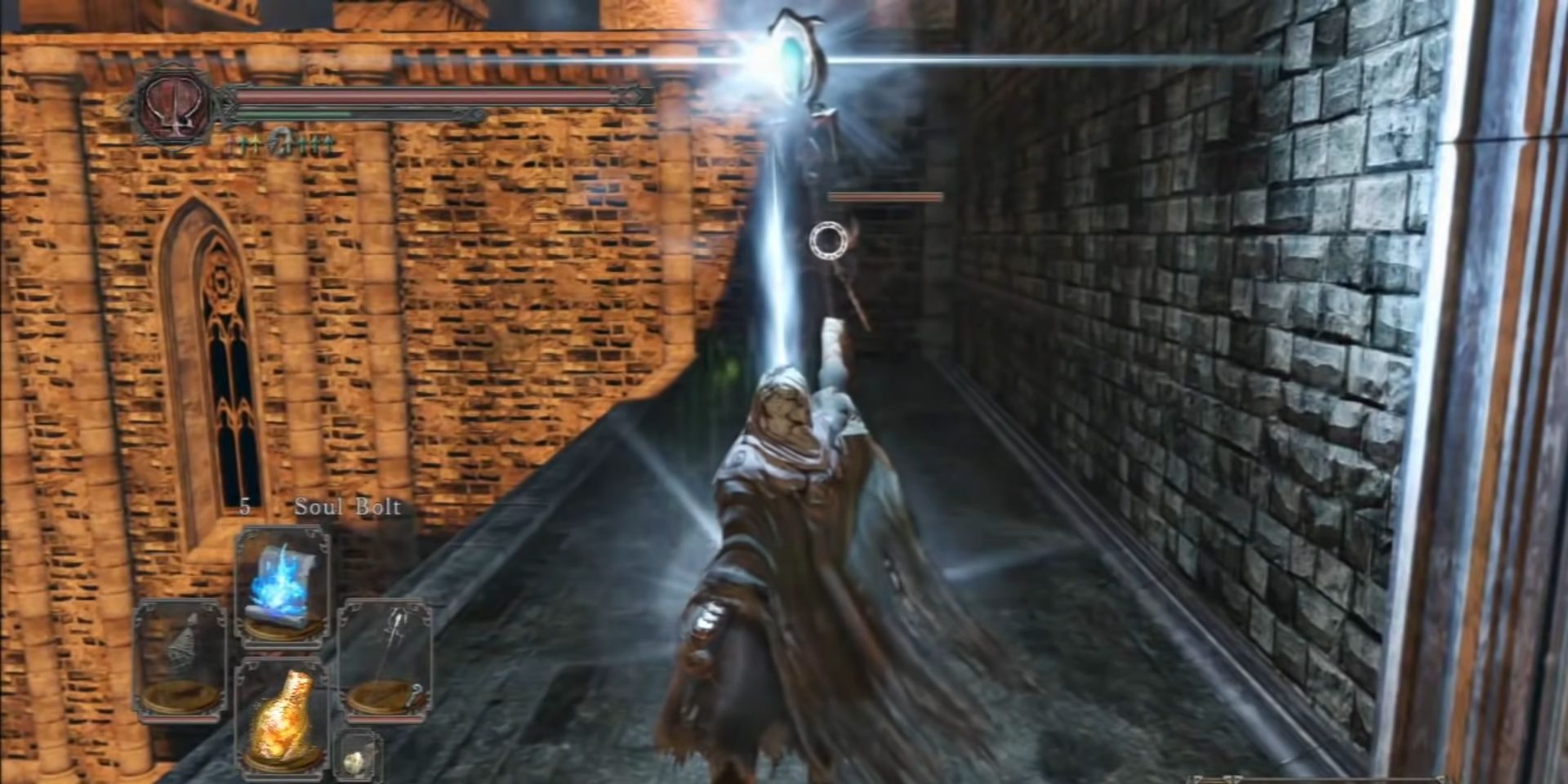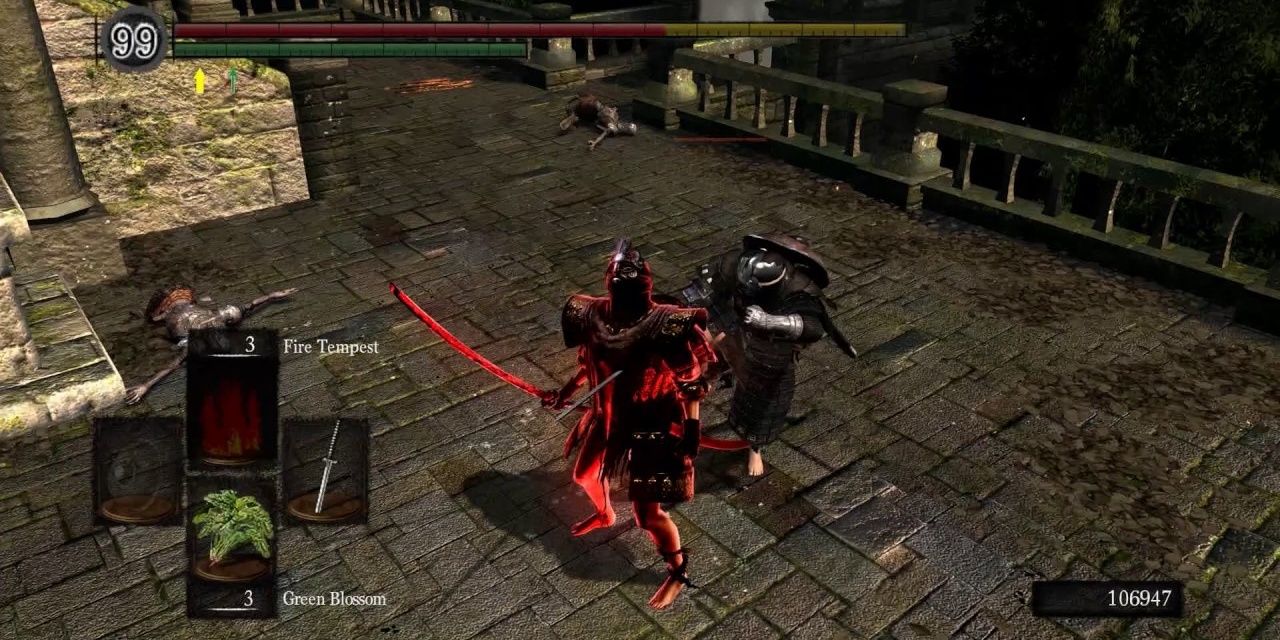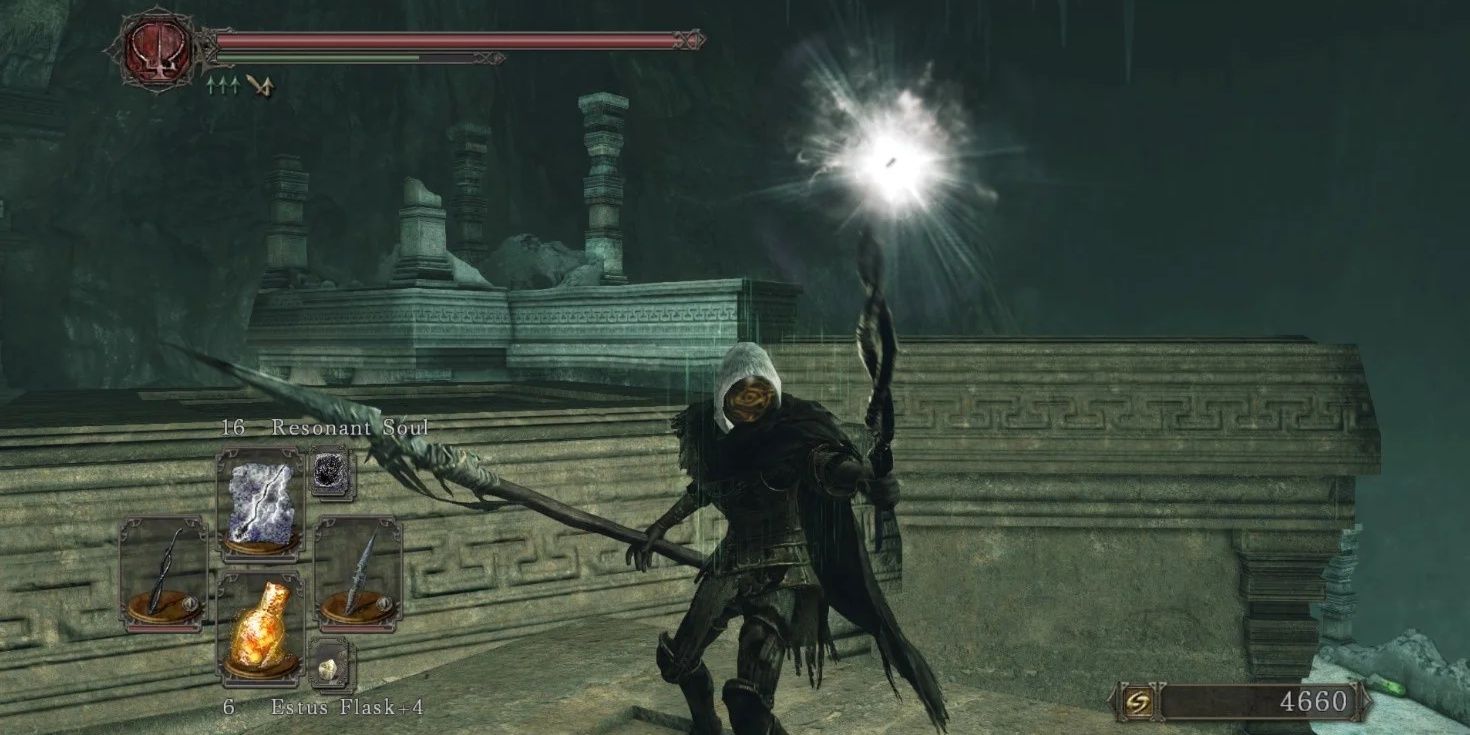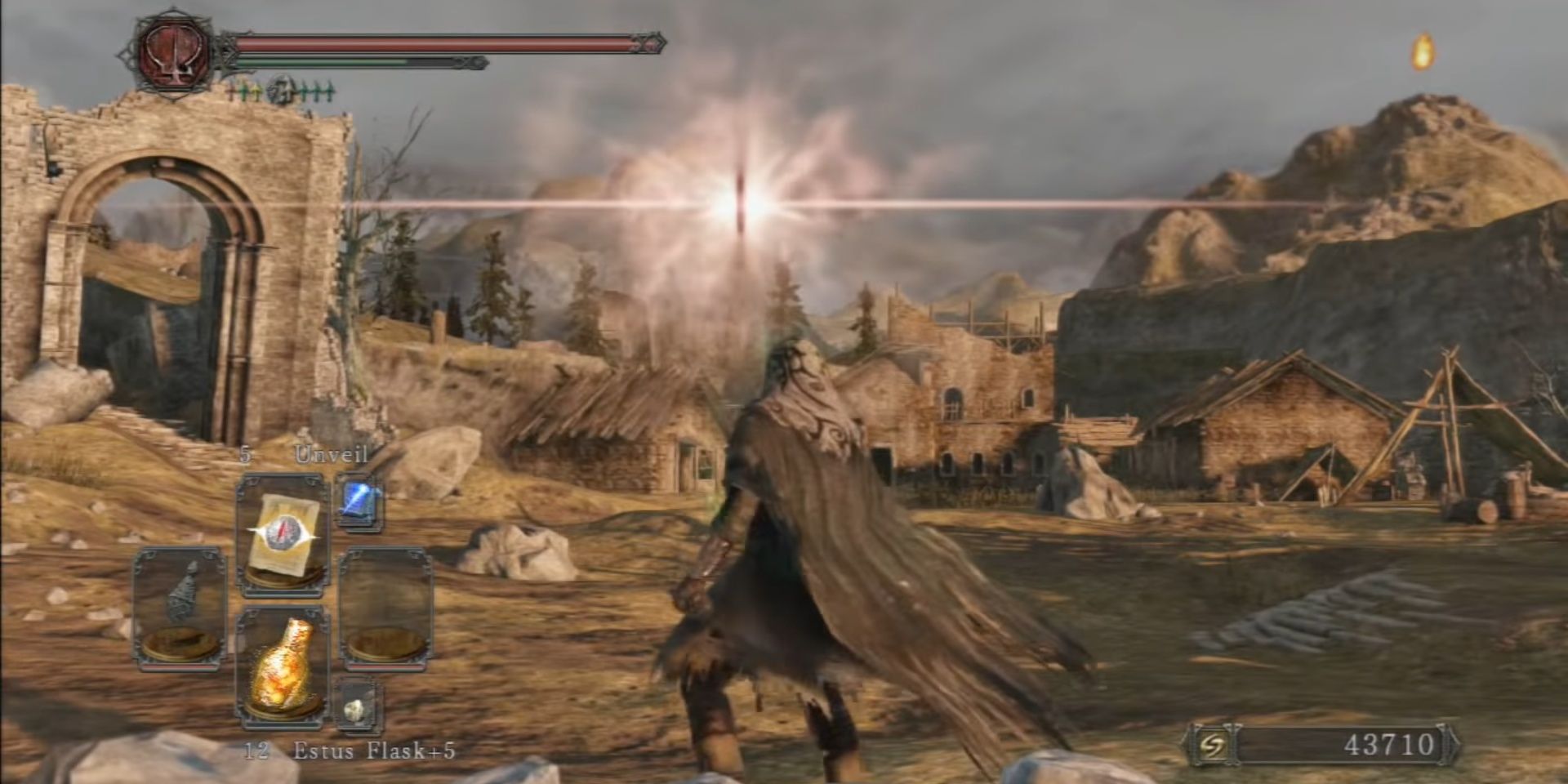Magic has had its ups and downs across the three mainline Dark Souls games. Even in the first game, magic was quite unpredictable. It sported insanely powerful pyromancy builds but players looking to be sorcery purists found that their spell books were quite a bit weaker. Though Dark Souls has always had powerful options for spell casters across a wide range of spell types, there have also always been plenty of truly impractical spells.
Most spells in Dark Souls require attunement slots. Some spells take more slots than others, preventing the use of multiple spells at once. This is just one limiting factor keeping magic in check. Most magic also scales with a related trait, intelligence and faith being the main two. Pure magic builds are tough to pull off, especially for new players, so leveling strength or dexterity for physical weapons is also important. Basically, magic builds require a lot more setup than other builds, and that's why it's good to avoid the most impractical spells in the series!
8 Undead Rapport (Dark Souls 1)
Though buffed in future titles, Undead Rapport made a fairly weak entrance in the first Dark Souls. This pyromancy charms certain undead foes to fight for the player, although these charmed enemies rarely leave the spot they were charmed at. The spell isn't ranged, so the player will have to get in the face of an enemy to charm it, and then it might not even attack nearby foes because they might fall slightly outside the charmed foe's aggro range.
Players wanting to lure charmed foes into battle can use other spells that draw enemy attention with sound, but this is what makes Undead Rapport so impractical. It's classified as a support spell, but it often needs one or two other supportive actions to even have it work correctly.
7 Farron Flashsword (Dark Souls 3)
Most variations of magic in Dark Souls have spells that summon magical weapons of that type (sorcery, miracle, or pyromancy) to replace the casting catalyst in the player's hand for a weapon. Unfortunately, many of these spells are quite lackluster, which is interesting considering these same types of spells were extremely powerful in From Software's Game of The Year title, Elden Ring. Farron Flashsword, like its counterparts, is affected heavily by the staff and intelligence of the caster. Weaker staves lead to a weaker range and damage to the summoned sword.
Essentially, these types of spells are impractical only because it's usually simply better to find a physical weapon that scales with the player's build. In the case of Dark Souls 3, even mundane weapons can be powerfully buffed with magic damage via the Magic Weapon sorcery.
6 Atonement (Dark Souls 3)
When it comes to impractical spells, Dark Souls 3 takes the cake with Atonement. This miracle basically increases the aggro range of enemies and has them target the caster with attacks more frequently. Unless a player is attempting a challenging run, there is little to no use for this spell.
Atonement stacks with other buffs and spells in the game, so it could perhaps be used in a combo with other spells that buff damage or give life steal, but even this is simply impractical in the end. As with most mobs in the Souls games, sticking to fundamentals and playing simple is usually the best course of action.
5 Seek Guidance (Dark Souls Series)
The Souls community is known for leaving messages across the worlds of all three games. These messages have gained notoriety online for their witty or crass humor, or just for completely fooling other players with flat-out lies. There are very few Souls players that actively dislike the message system. Seek Guidance is a really cool miracle that allows players to see more messages than usual, and even see their positive-to-negative rating ratios. It even allows players to spot hidden messages left by the developers.
Unfortunately, while cool, this spell is usually too impractical to bring along on journeys. Its effects interfere with other self-buffs, so actual stat-improving spells will be overridden by Seek Guidance. It gives the player no significant advantage over foes, so it's impractical for combat, but the best choice for players looking to immerse themselves in the silly messages of the Souls community.
4 Soul Bolt (Dark Souls 2)
If used against the right foes under the right circumstances and in the right area, Soul Bolt can actually be quite powerful. Unfortunately, there's a lot that needs to go right for this spell to be practical against most foes. This sorcery has a long casting time and the spell still has to travel through the ground to reach foes before damage can be dealt with it.
This spell is best used in narrow paths and against single targets, as it can only go straight forward, allowing mobs to move around it and attack the caster while they're vulnerable from the casting animation. While this may not be the most impractical spell in the game, there are plenty of better options for dealing high damage or staggering foes.
3 Hidden Weapon (Dark Souls Series)
PvP has always been a huge part of the Dark Souls series. It often garners its own hardcore audience who are dedicated to dueling other players. Hidden Weapon is a sorcery dedicated to PvP, as hiding a weapon will do little to the AI foes of the game world. The sorcery is quite simple; Hidden Weapon makes the caster's right-hand weapon invisible.
While it's nice that something does exactly what it markets, this sorcery is simply too impractical for a spell slot in PvP. Perhaps it tricked foes in the early days of Souls PvP, but by now, this sorcery isn't fooling anyone and simply wastes the caster's time.
2 Resonant Soul (Dark Souls 2)
Dark Souls 2 took dark sorceries from the first game and made them their own class of spells, called hexes. Resonant Soul is one such hex and requires decent scores in both faith and intelligence to cast. It also requires souls to cast. That's right, in order to cast this hex at full power, the player will need to spend 100 souls. This is chump change for most players, especially mid to late game, but it's still a negative towards this hex that cannot be ignored.
At full power, Resonant Soul is a more powerful version of Dark Orb, but many players in the community agree that Dark Orb is more practical in combat thanks to its shorter casting time and higher spell uses. As such, Resonant Soul is a bit of a forgotten relic inside Dark Souls 2.
1 Unveil (Dark Souls 2)
On release, Unveil located the nearest enemy or invading player in the caster's world. In trap-filled zones or areas with lots of enemy ambushes, this miracle could be quite useful, especially if a player was carrying a lot of souls and didn't want to die to a surprise attack. It also helped players find invading players. Unfortunately, this feature of the spell was removed entirely with the release of the Sunken King DLC.
Unveil no longer spots enemy invaders, and only works on the nearest foe. As a result, it's maybe practical for a new player once or twice, but its utility is nearly zero for most if not all players still playing Dark Souls 2. While the concept of the spell is neat, it stands as one of the if not the most, impractical spells in the entirety of the Dark Souls universe.




